Life Insurance When Pregnant: Guide To Coverage & Benefits
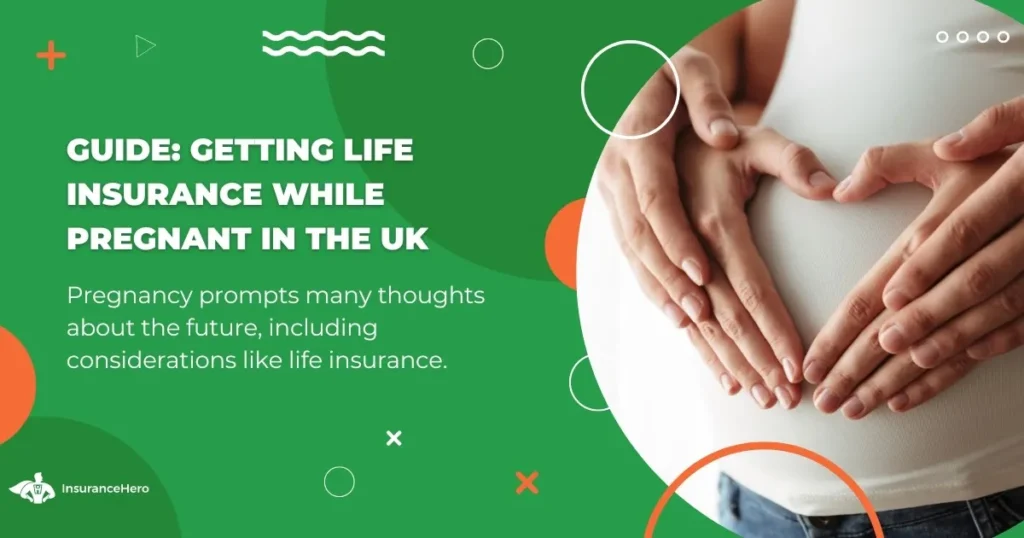
Pregnancy can often reshape your priorities, making your family’s health and financial security your top concern.
Life insurance can be an excellent option to help protect your child’s future. No one wants to face the prospect of something happening to them while their child is still young.
Can You Get Life Insurance When You’re Pregnant?
Yes, the process for applying for life insurance while pregnant is identical to that at any other time.
Pregnancy life insurance reassures you that your family members are supported if the unexpected should happen, prior to, during or after childbirth.
Here’s what you need to know:
- You go through the same application process, answer the same health and lifestyle questions, and make the same sorts of decisions regarding the amount of coverage you need and the term you seek.
- In general, insurers won’t raise your premiums solely due to pregnancy, though costs may rise if there are health issues linked to it.
- Submitting your application early in pregnancy can help prevent delays that may occur when medical referrals are needed later.
Life Insurance While Pregnant. Get Cover Starting From Only £6 Per Month

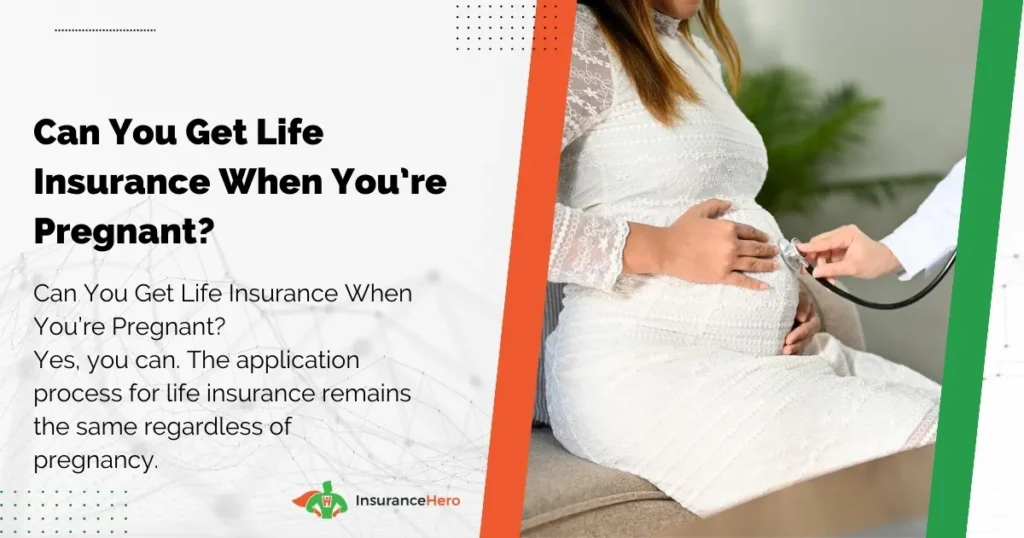
There are some ways pregnancy can impact your life insurance:
For example:
- If you smoked before you became pregnant and quit, you could still be classified as a smoker. To be considered a non-smoker, you generally need to have gone at least 12 months without using tobacco or nicotine products.
- You will want to provide your pre-pregnancy weight and your current weight when asked for your weight. Insurance providers know that pregnancy causes weight gain and that your current weight does not necessarily reflect your overall health. However, it’s still important to have both figures.
- Alcohol is contraindicated during pregnancy, with good reason. Cutting back or eliminating alcohol consumption during pregnancy is essential, but again, you’ll want to answer both previous consumption and current habits.
Do You Need to Disclose Your Pregnancy?
Yes. Since life insurance is determined in part by your current health situation, anything that impacts that situation is relevant to the determination.
You will need to disclose that you’re pregnant to the providers you’re applying to for coverage.
You will also need to disclose any other health issues you may have, including health issues that are caused by or relevant to your pregnancy.
Since pregnancy can cause all sorts of changes and problems to your body as you go through the process, these are not uncommon, and they aren’t likely to get you denied cover; however, they can make your policy slightly more expensive until you’ve successfully given birth and pulled through the process.
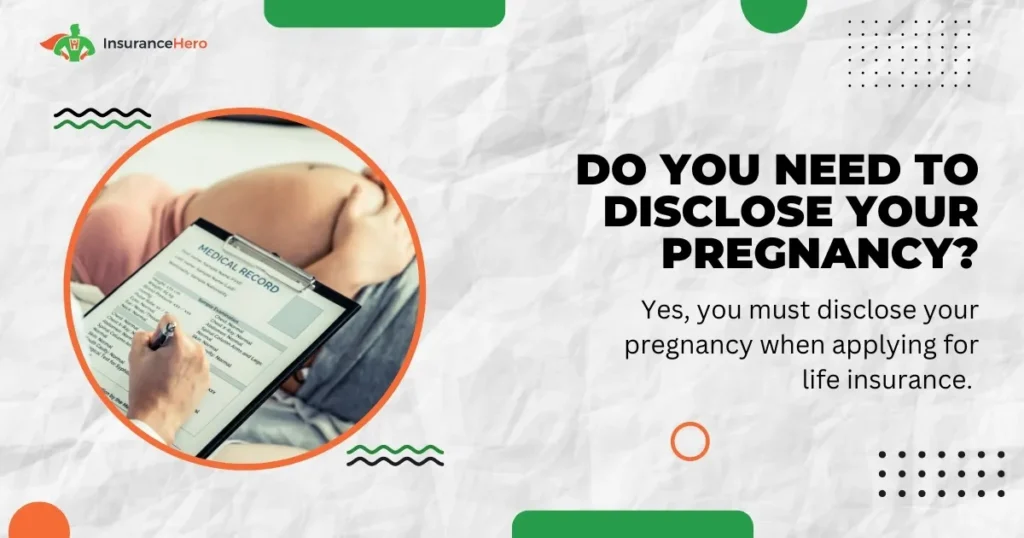
It’s important to be honest and provide full disclosure here. There’s a negative public perception surrounding life insurance providers: they are constantly looking for reasons to deny claims, and that life insurance is somehow a “scam” because of this.
The truth is that most insurance providers pay out benefits without issue. That said, the single most common reason for life insurance claims to be denied is if the basis for the policy was fraudulent.
That means if you omit relevant health information – such as that your pregnancy is a high risk to your own life – and then you die, your claim may be denied because you left out that critical information.
Even if your cover costs more because of the risk you present, it’s still better than having your claim denied.
No one wants to suffer such a blow when they’re already suffering from the loss of a loved one or spouse.
If You Already Have Life Insurance Coverage, Do You Need to Take Any Action?
No, you’re not required to do anything. If you already have life insurance coverage, the life insurance provider has determined your health and the risk you present to them, and they’ve extended a policy offer to you.
If you then become pregnant, you’re simply living your life. Your insurance provider does not require that you notify them.
However, getting pregnant can be a good opportunity to consider reevaluating your current policy. Maybe, when you grow your family, you find that your current amount of cover and the benefits your family would receive upon your passing are not quite enough.
A higher level of cover might be more appropriate for your changing life circumstances, helping to maintain your family’s lifestyle in your absence.
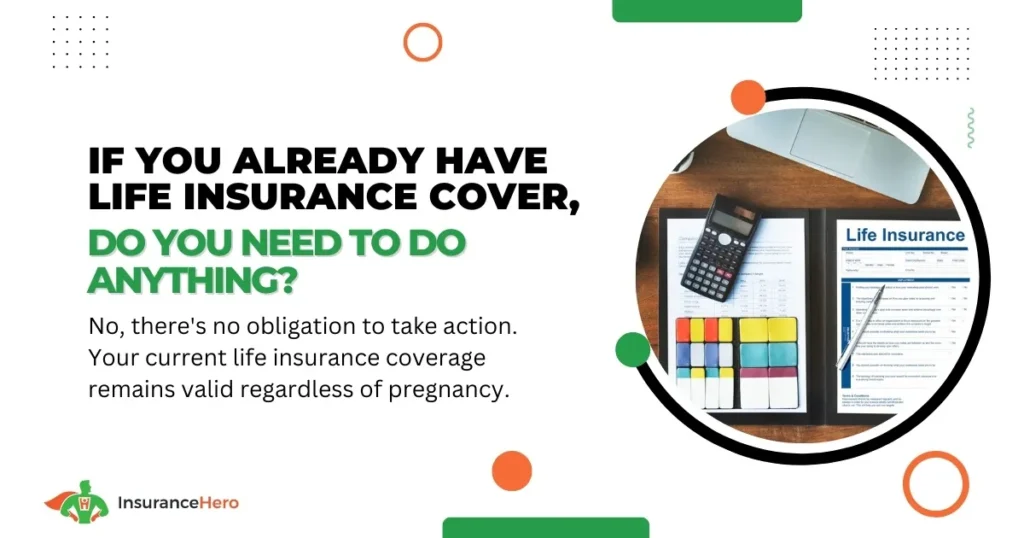
You can contact your life insurance provider to discuss changing your policy. They may ask you additional questions, such as why you’re considering the change, and you may then need to disclose your pregnancy.
You may also consider cancelling your current coverage and seeking a new policy with a different provider if they offer one that better meets your needs.
In this case, you’ll generally need to go through the whole process and disclose your full health information, including your pregnancy, again.
How Does Pregnancy Affect Life Insurance Cover?
If you already have coverage, getting pregnant should not impact your coverage at all.
Pregnancy can impact the quotes you receive if you’re applying for cover. However, it’s not because of the pregnancy itself. It’s due to certain health complications you may experience while pregnant.
The realities of pregnancy are already baked into life insurance cover actuarial tables and calculations based on biological sex, marital status, and other essential information.
The specific sort of health problems that impact your life insurance quotes are things like pregnancy-related anaemia, high blood pressure, or gestational diabetes.
These can cause you significant issues while you’re pregnant, but often resolve with careful treatment, care, and lifestyle changes during and after pregnancy.
Most people’s primary concern when applying for life insurance is the cost. Will being pregnant increase the cost of your life insurance premiums month to month?
Often, the answer is no. If you have specific health issues, your premiums may be slightly higher.
Still, since pregnancy is such a short-term event (when considered against 20-, 30-, and 40-year terms for life insurance policies, anyway), it does not significantly raise costs.
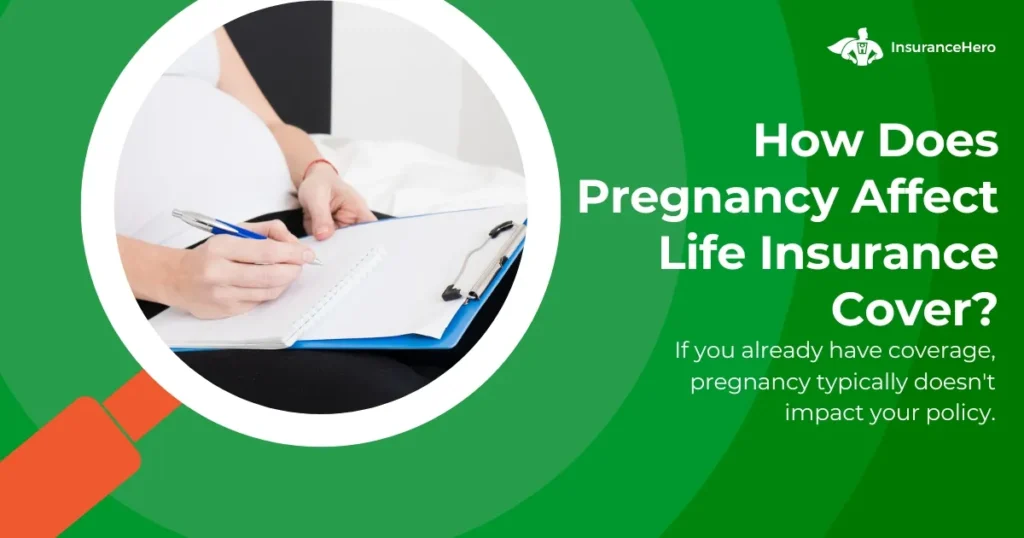
If you have a trouble-free pregnancy with no complications or health issues associated with it, your costs shouldn’t change at all.
One exception to all of the above is if you’ve had a child before and you had complications during that pregnancy.
This is part of your medical history and is relevant to your future pregnancy. While you’re certain to be getting excellent medical care that proactively watches for such complications, it’s still a risk factor that your life insurance provider will need to calculate.
Is There a Better Time to Apply for Life Insurance Cover?
Since the cost of life insurance premiums can very slightly increase when you’re pregnant if you have health issues related to that pregnancy, is it better to apply for cover at a different time?
The answer is, potentially, yes.
You can apply for life insurance cover before you become pregnant. You are generally not asked whether or not you intend to become pregnant when you’re using, so your life insurance quotes will typically not be affected by your intent to have a child shortly.
You can also apply for life insurance coverage in your first trimester.
Most pregnancy-related illnesses, like gestational diabetes and high blood pressure, don’t start showing up until you’re later on in your pregnancy, so you won’t have them in your first trimester, even if you develop them later.
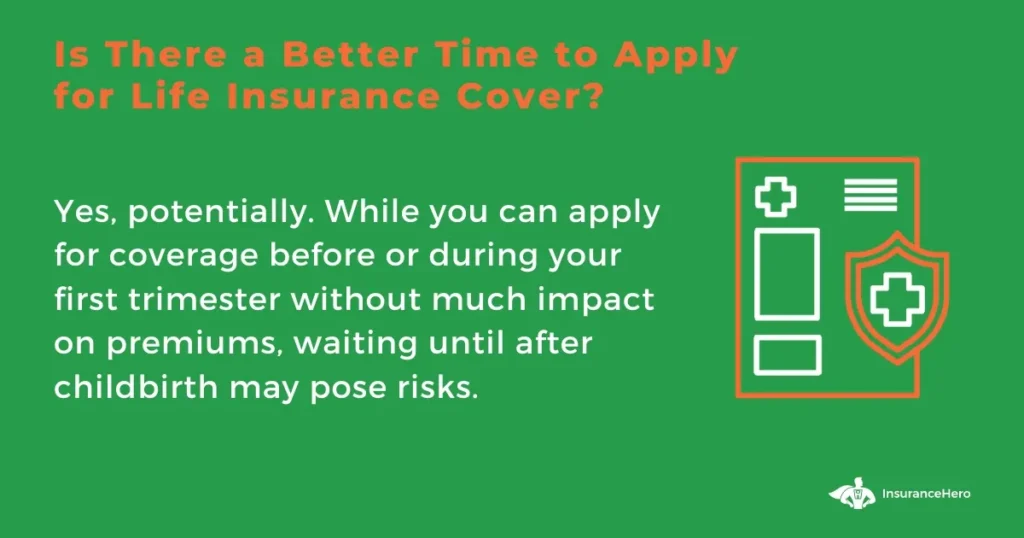
Should you wait until you give birth to apply for life insurance coverage?
Often, the answer here is actually a solid “no.”
There are three main reasons for this:
1. If something terrible happens while you’re giving birth and you die in childbirth, then it’s too late to apply for life insurance cover. You’ll leave behind nothing more than your standard estate, which isn’t all that much for many young parents these days.
2. Late-term pregnancy symptoms and post-partum symptoms, like weight gain and lingering high blood pressure, can be factors that increase the costs of your life insurance coverage.
You may be better off waiting until these issues are resolved, if they are resolved at all, before applying. Unfortunately, that leaves you without months or years of valuable cover.
3. Post-partum depression is, unfortunately, a very real and significant cause of other health issues and problems in new parents and is a risk factor that your insurance provider will need to consider.
The earlier you get your cover, the better.
Should You Name Your Child the Beneficiary?
We often discuss life insurance in terms of its flexibility. You can name, in most cases, anyone as a beneficiary of your policy.
That includes parents, spouses, children, business partners, and even charitable foundations and nonprofit organisations.
So, is it a good idea to name your child – even if they’re not yet born – as the beneficiary of your policy?
Unfortunately, the answer is often no. Most life insurance firms are not willing to pay out death benefits to a child, especially one well under legal age.
It would be ridiculous to give a newborn a large life insurance payout, and even a child in their teenage years may not be responsible enough to handle the money.
As such, most life insurance providers will place the policy in a probate system, where it is assigned to a guardian or estate manager to hold and manage it until the child turns 18 or even 21.
In the meantime, management fees may apply and reduce the payout, and any interest that could be earned from investing the money won’t be applicable.
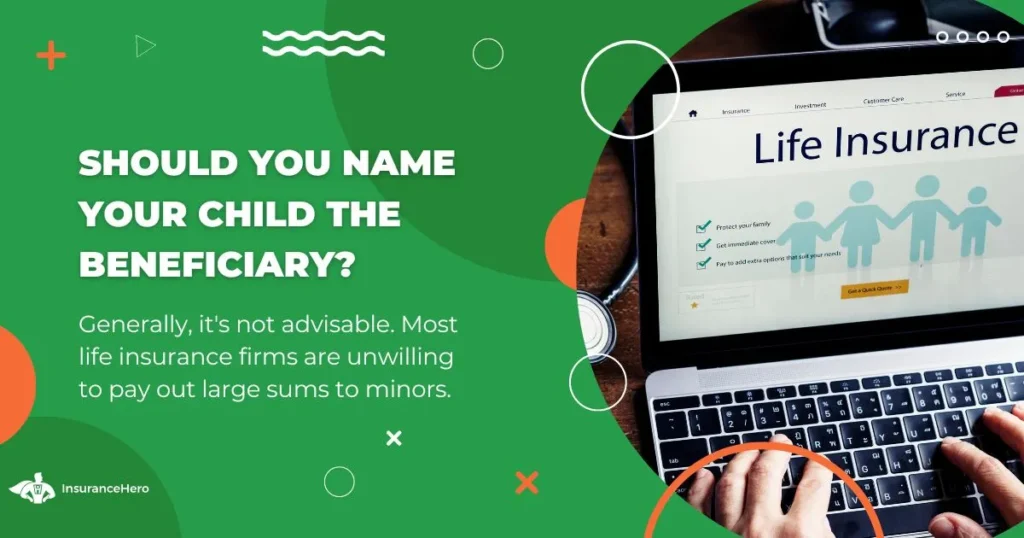
Instead, it’s often better to do one of three things. The best option is to make your spouse the beneficiary of the payout.
If you pass, they’ll be the ones taking care of the child anyway, so they’ll need the money the most. Unfortunately, this doesn’t work out in cases of single parenthood for any reason.
The second option is to designate a guardian for your child and make them the beneficiary. This guardian could be a sibling, a parent, a cousin, or a good friend.
The third option would be to set up a trust or custodian expressly for investing and managing the benefit for the child’s good until they receive it.
Of course, you have the choice. However, it’s not a good idea to assign your child as the beneficiary until they’re old enough to receive the money without complications.
Where is the Best Place to Get Life Insurance Cover While Pregnant?
There is no one answer to this question. Your individual health and lifestyle factors will significantly affect how each insurance provider offers you coverage.
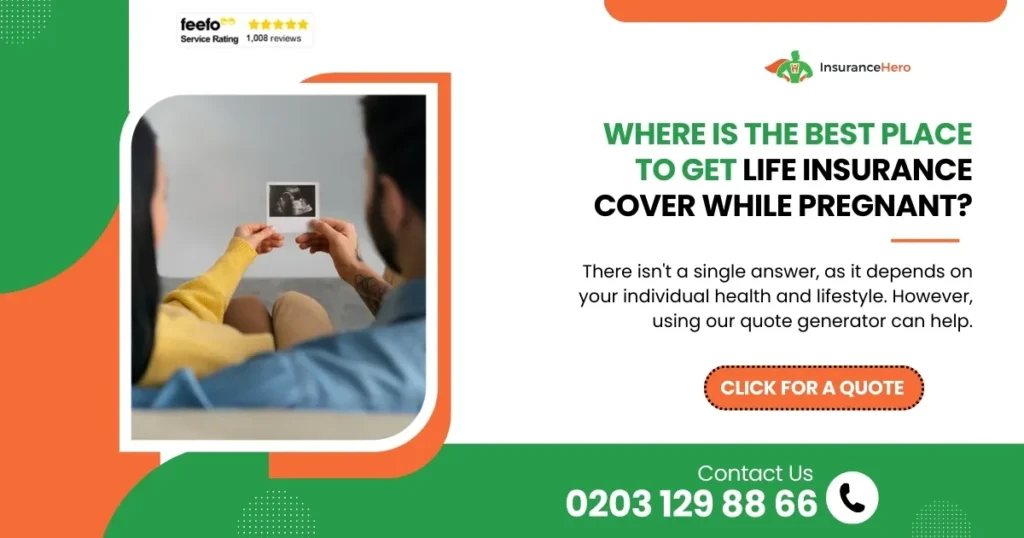
Fortunately, there’s one great way to get numerous quotes at once, so you can compare them directly and pick the best policy for you and your family. That’s by using our quote generator.
Simply click that link, fill out a quick form, and we’ll forward your information to all of the UK’s best insurance providers.
They’ll evaluate your situation, offer you a quote in minutes, and have coverage up and running in no time.
Sadly, many things can go wrong in life. A sudden illness, a car accident, a bad fall—any number of things can cut a life tragically short and leave a family struggling. Life insurance is quite literally insurance against that happening.
External resources:
- https://www.cnwl.nhs.uk/services/mental-health-services/milton-keynes-perinatal-mental-health-service/national-organisations-which-provide-advice-and-support-pregnancy-birth-baby-and-perinatal-mental-health
- https://www.legalandgeneral.com/insurance/life-insurance/family/life-insurance-when-pregnant
Steve Case is a seasoned professional in the UK financial services and insurance industry, with over twenty years of experience. At Insurance Hero, Steve is known for his ability to simplify complex insurance topics, making them accessible to a broad audience. His focus on clear, practical advice and customer service excellence has established him as a respected leader in the field.



